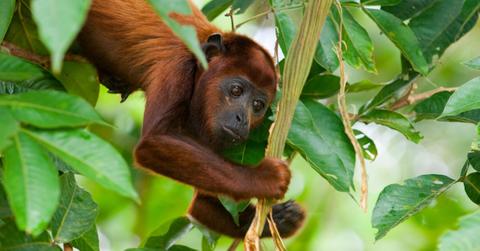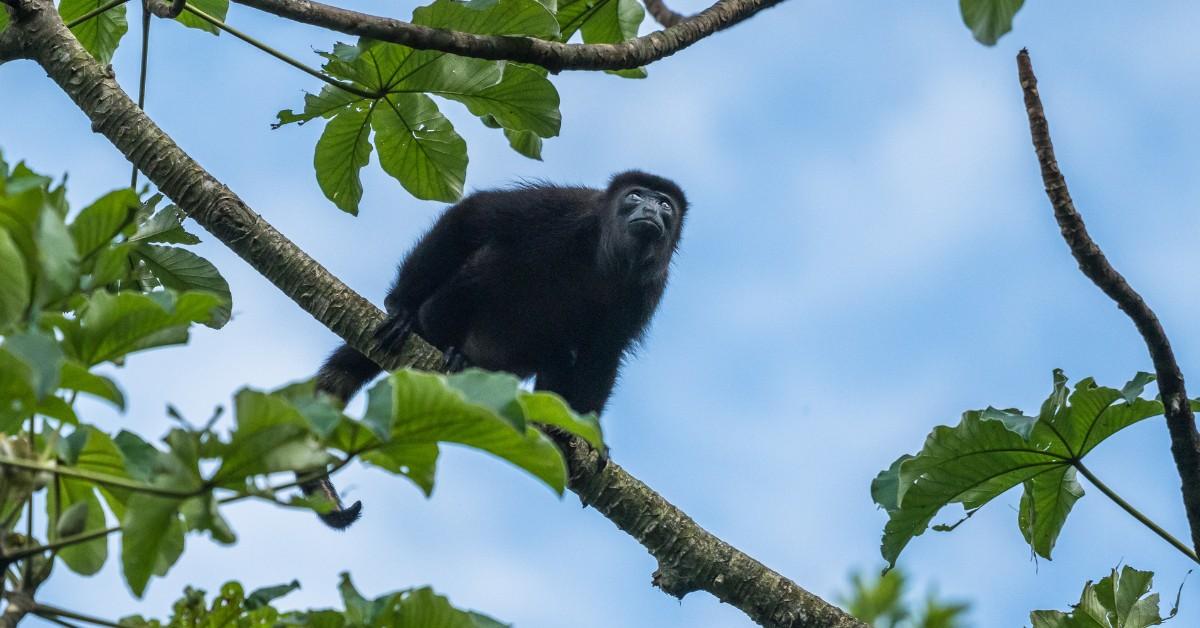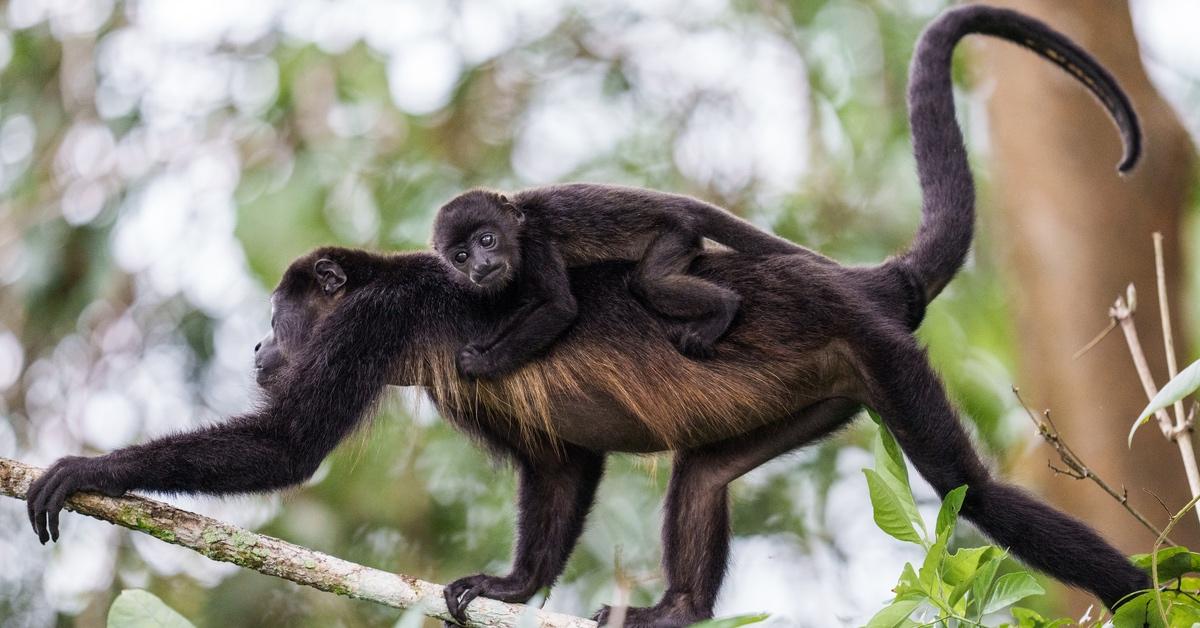Climate Change-Induced Heat Is Killing Howler Monkeys — Details Here
The country has yet to confirm a death toll, but hundreds of monkeys are likely to be lost in the heat wave.
Published May 22 2024, 12:42 p.m. ET

Extreme temperatures and a lack of water appear to be behind a rash of mantled howler monkey deaths in Mexico. This news is especially sad because the howler monkey population was already suffering due to deforestation across the country, per Science Daily.
The problem appears to be worsening for the howler monkeys in Mexico since temperatures have continued to climb since the heat wave began.
Continue reading to learn just how hot Mexico is likely to get, a few facts about howler monkeys, and why the country may continue to see death tolls climb before temperatures return to normal.

Howler monkeys in Mexico are dropping dead due to extreme heat.
Temperatures are expected to reach 113 Fahrenheit in Tabasco, Mexico, in May 2024. According to Reuters, officials say they recovered at least 85 dead monkeys from three different municipalities within the state since the heat began.
The Tabasco Civil Protection Agency says that dehydration is likely the main culprit because, in addition to record-high heat, parts of the country are also experiencing significant droughts.
Volunteers have been recovering the bodies of the monkeys and trying to save creatures when able by calling fire departments or veterinarians. They are also trying to help prevent further carnage by putting out fruit and buckets of water for the dehydrated and overheated primates.
"They arrived in critical condition, with dehydration and fever,” Dr. Sergio Valenzuela, a veterinarian, told the Associated Press (AP). “They were as limp as rags. It was heatstroke."

Concern over the deaths has spread beyond volunteers, as Mexico's President Andrés Manuel López Obrador has also issued a statement vowing to help the monkeys in any way he can during the heat wave, per Reuters.
Mexico's Ministry of Environment and Natural Resources also promised to take action after saying that the monkeys may be facing more than just heat stroke and dehydration. Tragically, monkeys could also be dying from toxic chemicals sprayed on nearby crops.
Mexico's heat wave is taking a toll on more than just the monkeys, as 26 people have died from the heat since the country's warm season began in March. CNN reports the heat has been brought about by a combination of El Niño and human-caused climate change.
Are howler monkeys dangerous?
While howler monkeys are wild animals and therefore, can be unpredictable, they are not known for being overly aggressive towards humans. Howler monkeys rely on something other than brute strength when it comes to warning away any possible threats, and it has a lot to do with the primate's descriptive name.
Why do howler monkeys howl?
According to National Geographic magazine, the monkeys use their voices during the early morning hours as the sun breaks or in the evening as dusk settles in to send a message to other monkeys, letting them know that the area they may be entering is already occupied. They're able to reach such high volumes thanks to their physical attributes, which include a vocal chamber that is shaped like a shell and a larger-than-average throat.
These features not only allow them to get loud, but they also enable them to project their howls, which can be heard for several miles. Hopefully, any cries for help can also be heard from these monkeys as they face the dangerous conditions that continue to take their lives.